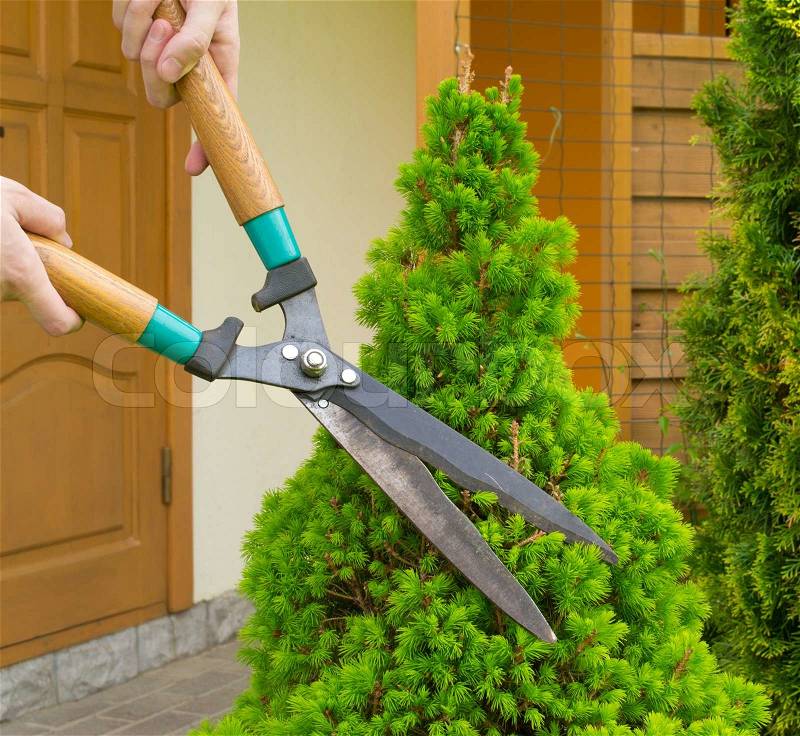Hello folks,
September is finally here and summer is coming to an end. I haven’t written for a while because right now I don’t have Internet
connection, but I’ll manage to keep writing anyway. My holidays are over and I
am a bit lazy lately, he he. That’s why I decided to write an entry on
clippings, given that they represent other beautiful quirks in the English
language and what it more, they are somehow witnesses of the laziness and
idleness within the English language, the laziness that I experience by myself
at the beginning of September.
What are shortenings and clippings ? Let’s analyze the verb ‘clip’. It
is a synonym for ‘cut sharply.’ Do you know what clippers are ? A tool to cut
tree branches. Have a look at the picture.
 |
| From : https://www.colourbox.com/image/hands-are-cut-bush-clippers-image-1901329 |
In linguistics -as I explained in my post about lexical creativity- clippings or clipped words are reduced
versions of words, words that have been cut down or clipped, that is, a shorter
form of a long word, within colloquial or informal language. Clippings play an
important role in language economy, since they are short, fast, straightforward
and easier for kids. In other words, they are some acceptable colloquial words
used by ‘lazy’ speakers when they intend to reduce the syllables uttered for
the sake of linguistic economy. They are somehow similar to abbreviations and initials, but they
have more autonomy and meaning by themselves and they are used in everyday
English.
If you don’t understand what they are already let me give you some
examples, both in Spanish and English. Being a teacher, I am sick of listening
to my students pronouncing the word “profe”, which is
obviously a clipping for “profesor”. Obviously, some clippings are not gathered
in the dictionary given that they belong to over-colloquial language, but a
great deal of them have gained access to the language and have become perfectly
accepted and even more often used than their longer counterpart. Let’s
exemplify this : what is the subject you study at school which is related to
numbers ? : the answer is ‘maths’ or ‘math’ (‘mates’ in Spanish), which are
perfectly accepted clippings for ‘mathematics’ (word frequently used in formal
contexts). Clippings are widely used in proper nouns, that is, for the names of
people. ‘Joe’ is a clipping for John. Understood ?
Well, here you have some example of shortenings, clippings or clipped
words.
Clippings related to family
Clipping
|
Long word
|
ma
|
mama / mother
|
pa
|
papa / father
|
grandma
|
grandmother
|
grandpa
|
grandfather / granddad /
granddaddy
|
bro
|
brother
|
sis
|
sister
|
teen
|
teenager
|
Clippings related to technology
Clipping
|
Long
word
|
tech
|
technology / technician
|
phone
|
telephone
|
cell
|
cellular phone
|
nuke
|
nuclear bomb
|
cam
|
camera
|
mic / mike
|
microphone
|
bot
|
robot
|
intel
|
intelligence
|
telly
|
television
|
Net
|
Internet
|
sat
|
satellite
|
sync / synch
|
synchronize
|
Clippings related to proper names (names of people)
Clipping
|
long
word
|
Sam
|
Samuel (for boys); Samantha
(for girls)
|
Tom
|
Thomas
|
Ben / Benji
|
Benjamin
|
Fred
|
Frederick
|
Alex / Lex / Lexi
|
Alexander (for boys); Alexis
(for girls)
|
Jim
|
James
|
Rob
|
Robert
|
Cat
|
Catherine
|
Mat
|
Mathew
|
Other clippings
Clipping
|
Long
word
|
tool
|
stool
|
till
|
until
|
round
|
around
|
ain't
|
aren’t / isn’t / haven’t / don’t / am not
|
ad / advert
|
advertisement
|
choc
|
chocolate
|
id
|
identity / identify
|
tec
|
detective
|
jams / jammies / pyjis
|
pyjamas / pyjamas
|
shrink
|
head-shrinker
|
Pull
|
pullover
|
mag
|
magazine
|
zoo
|
zoological garden
|
barbie
|
barbecue
|
cred
|
credibility
|
pack
|
packet / package
|
fest
|
festival / festivity
|
Brits
|
Britons
/ British
|
Sometimes, compounds are also clipped, losing one word. This causes confusion because a specific word is replaced by a generic word:
Clipping
|
Long word
|
case
|
suitcase
|
sack
|
rucksack / knapsack
|
bag
|
schoolbag / handbag / shoulder
bag
|
pool
|
swimming pool
|
lace
|
shoelace / bootlace
|
board
|
blackboard / whiteboard / chalkboard / writing board
|
pack
|
backpack / daypack
|
paper
|
newspaper
|
bike
|
motorbike / bicycle
|
mobile
|
mobile phone
|
Well, have you learnt some clippings to use in your everyday English ? I
hope so, since clippings are widely used by native speakers. As you have seen,
most clipped words keep the beginning of the word and lose the final part. This
is called apocope as happens for
example in ‘info’ for ‘information.
Other less frequent examples of clippings keep the final part of the word and
lose the beginning. This is what happens in ‘phone’ (the reduced clipped
version of ‘telephone’). This is
called apheresis. Finally, some
clippings keep the middle part of the word and lose the beginning and the
ending, for example, ‘flu’ as the clipping for ‘influenza’ or ‘fridge’ as the clipped counterpart for ‘refrigerator.’ This is called syncope.
What is your favourite clipping ? What do you think about this process
of forming new words? Come on ! It’s time to post a comment sharing all the
clippings you use when speaking English. Next week I will be giving you some exercises on clippings. You will have to deduce the long word from the
clipping.
See you soon.
No comments:
Post a Comment